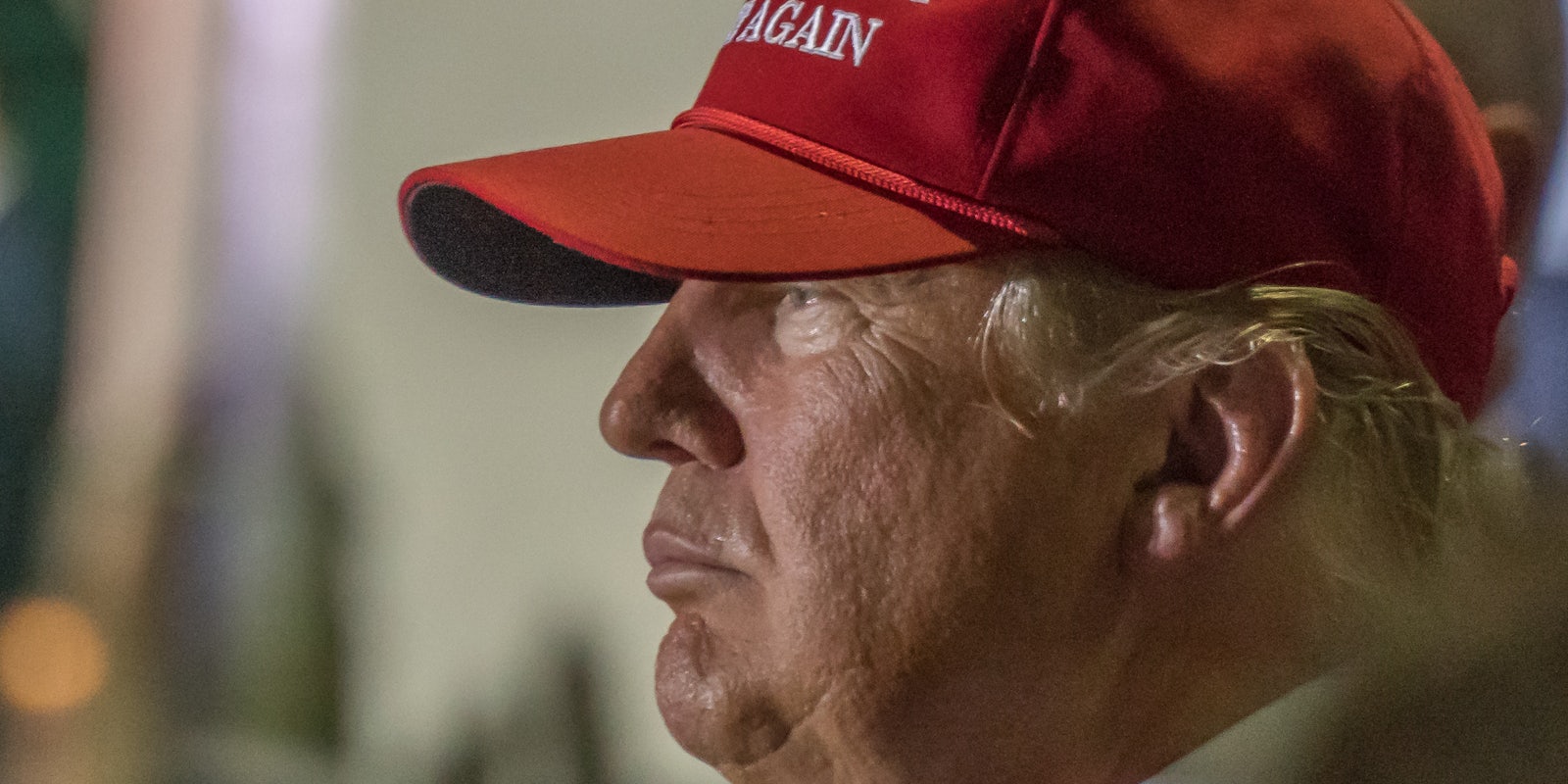The American Civil Liberties Union did not mince words in a report released Thursday concerning President Donald Trump’s first 100 days in office.
“As Trump’s 100th day in office approaches, it is clear that resistance to his unconstitutional and un-American policies is everywhere,” said ACLU Executive Director Anthony Romero, who said he views the energetic, Democratic resistance to Trump’s presidency as the “one thing” he’s helped accomplish. “It is broad, deep, and intersectional, breaking barriers across class, gender, race, and even political and party lines, as some conservatives cast their opposition to Trump.”
From the Women’s March to the airport protests that followed the travel ban on Muslim-majority countries, the ACLU is measuring Trump’s first 100 days not by his own achievements, but by the intransigence of a vocal opposition. “The man sitting in the Oval Office now understands intimately that there is a large revolt against his dangerous and often unconstitutional policies in the streets, in the courts, and in legislatures across this great country of ours,” they said.
The first 100 days—a yardstick by which presidents have measured their successes since the mid-20th century—is said to be when the presidency is at its most effective. With a national campaign victory under their belts, and with the midterm elections distant on the horizon, those first few months are integral to setting the president’s agenda and establishing the strength of his office.
Trump, for the most part, has squandered that time, putting forth a legislative agenda that has been encumbered or beaten outright, largely by uncooperative members of his own party. The travel ban—a chief campaign promise—was stymied by federal judges across the country; the attempt to overturn Obamacare failed in a spectacular fashion; and this week, Trump indicated that leaving funding for his border wall out of the fiscal-year 2017 budget was not a deal-breaker.
In other significant defeats, Trump’s first national security adviser, retired Lt. Gen Michael Flynn, was forced to resign after just three weeks, accused of lying to Vice President Mike Pence. And his attorney general, Jeff Sessions—who was also mired by accusations that he misled senators during his confirmation hearings—was forced to recuse himself from any investigation involving Russia’s attempts to disrupt the 2016 election.
What should have been a pivotal month for Trump, March was essentially swallowed up by a controversy of the administration’s own making: A secret, late night rendezvous between Rep. Devin Nunes (R-Calif.) and White House attorneys—in which classified material was shared in the hope of implicating Obama administration officials in something inappropriate—forced the chairman of the House Intelligence Committee, a key Trump ally, to recuse himself from an investigation in which the president is a central figure.
“Trump came into office with historically low approval ratings, and they basically haven’t budged since,” the ACLU notes, citing a recent Pew Research Center report that determined Trump’s disapproval rating is the highest, by far, of any president since at least Ronald Reagan.
The organization was also highly critical of Trump’s decision to target undocumented immigrants who were brought to the U.S. by their parents as children, despite promising not to do so during a December interview in Time. (“We’re going to work something out that’s going to make people happy and proud,” he said.)
“In mid-February, over the course of a few days, ICE conducted raids in 12 states, sparking anguished protests as longtime U.S. residents without criminal records were torn away from their children, their jobs, their lives, and deported,” the ACLU said.
See below for a day-by-day digest of Trump’s “100 Days of Failure.”
Read the full statement by the ACLU here.
Click here for the ACLU’s interactive timeline of Trump’s first hundred days.


